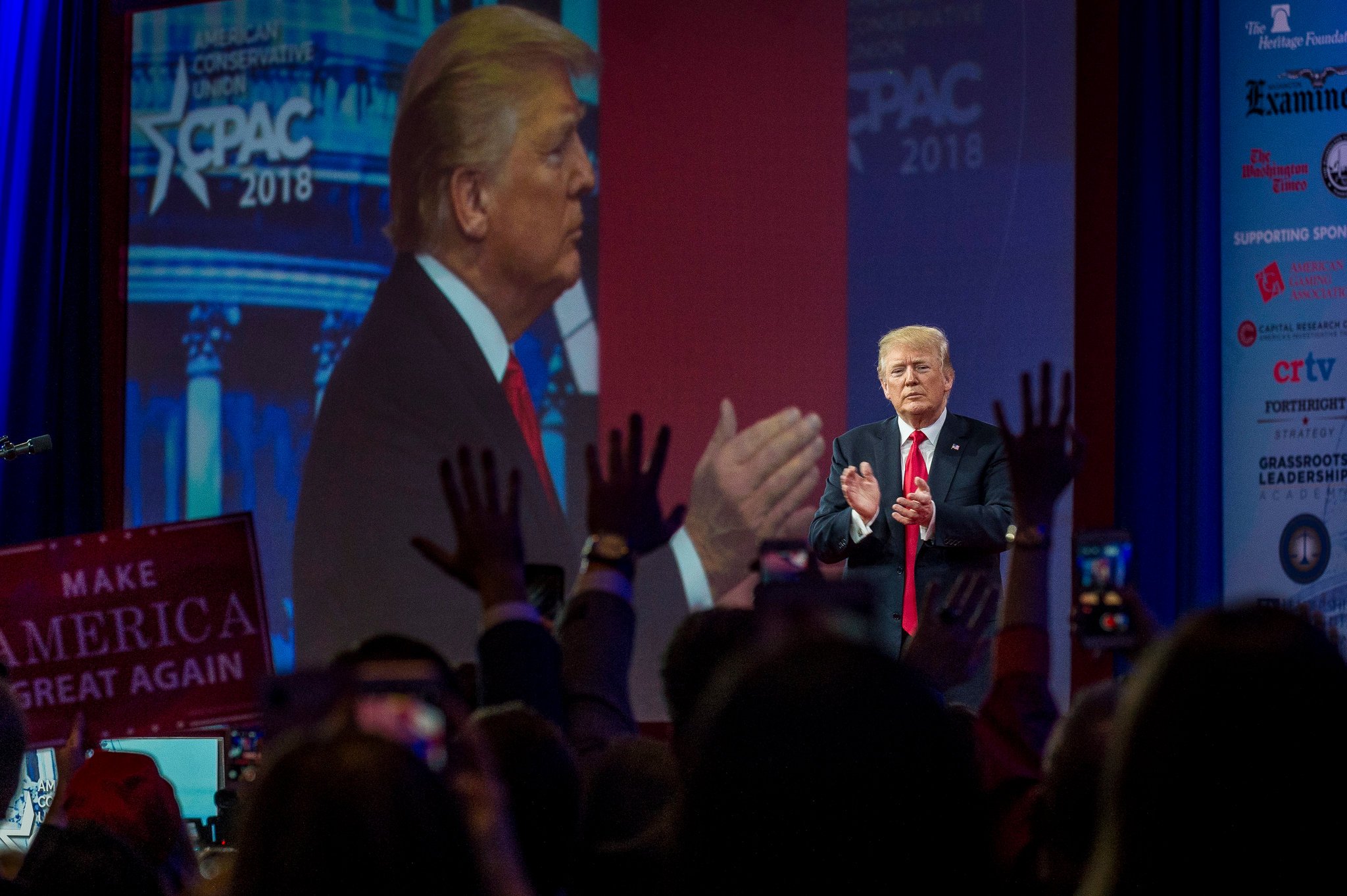
As it happens, Mr. Cruz, the Republican senator from Texas who was once Mr. Trump’s primary opponent and the object of his taunts, apparently believes everything is going swimmingly. He spoke glowingly on Thursday about the administration’s accomplishments. And in an interview before he took the stage, Mr. Cruz ran through the policies that pleased him the most.
Regulatory reform, Mr. Cruz said, was “an unalloyed success” for the president. The judges Mr. Trump has appointed were “a home run.”

Credit
Pete Marovich for The New York Times
“If you set aside the noise and the political circus of Washington and if you focus instead on the substance,” Mr. Cruz added, “I am deeply gratified with what this Republican president, Republican administration and Republican majority have been able to accomplish.”
Coming from someone as deeply tied into the conservative movement as Mr. Cruz — who also called Mr. Trump “a sniveling coward” and a “big government liberal” when they were opponents — such praise is striking.
But not everyone has been so willing to bury their doubts. Those skeptics worry that if Mr. Trump keeps getting cast by Republicans as a champion of conservatism — when they believe he is just an opportunist with no real ideological core — the movement is doomed.
“In three years (maybe seven), Donald Trump will no longer be president,” Richard Brookhiser, a conservative scholar, wrote in National Review a few days before the conference began. “But conservatives who bent the knee will still be writing and thinking. How will it be possible to take them seriously? The short answer is, it won’t.”
Yet the number of conservatives who once raised similar questions about Mr. Trump but now profess to be pleased with what they see keeps growing.
Ken Cuccinelli, a Virginia Republican and longtime movement conservative, called the current assessments of Mr. Trump “very outcome-based.”
“There are things that he’s doing that, as a conservative, I’m wildly happy about,” Mr. Cuccinelli added, rattling off familiar items from the list. He paused when he got to deregulation, which he called “spectacular.”
“That’s why stuff like Stormy Daniels isn’t mattering,” Mr. Cuccinelli added, referring to the actress who once claimed to have had an affair with Mr. Trump.

Credit
Pete Marovich for The New York Times
The Teflon armor Mr. Trump has built up with many conservatives, especially religious and social conservatives, has become one of the most predictable aspects of his presidency.
When reports surfaced that Mr. Trump’s longtime lawyer had paid $130,000 to Ms. Daniels after she came forward with an account of having an affair with Mr. Trump before he ran for office, leaders of the religious right were largely unmoved. Hardly anyone made the kind of apocalyptic predictions that were constantly voiced during the 2016 campaign when he would do something outrageous.
Not that conservatives are exactly overjoyed. The mood at the gathering this year was a testament to that. For much of the two-day event, the crowds seemed thinner and the atmosphere decidedly flatter than last year, when activists were still on a high from the Republicans’ unexpected victory and greeted now-departed members of the administration like Stephen K. Bannon and Reince Priebus with a rapturous welcome.
When administration officials like Betsy DeVos, the education secretary, and Kellyanne Conway, the counselor to the president, spoke this week, they did so to a hall with row after row of empty seats.
Enthusiasm may have been missing from much of the festivities this year. But Mr. Trump’s influence was still apparent. Speakers borrowed signature phrases of his like “fake news.” Some, like Wayne LaPierre of the National Rifle Association, indulged the president’s complaints that the Justice Department was engaged in a political witch hunt against him.
Nigel Farage, the British politician credited with helping push his country toward exiting the European Union, was a featured speaker. The editor of Breitbart in London introduced him. Marion Maréchal-Le Pen, a rising star of the nationalistic hard right in France, also spoke.
Even the panel discussions had a Trumpian edge, with titles like “#TrumpedUp: Unmasking the Deep State” and “The Political Weaponization of Prosecutions.”
“Romney used to own this place,” said David Bozell, a conservative activist, referring to the 2012 Republican nominee. “Now Romney is running for Senate in Utah and he doesn’t even show up. What does that tell you?”
Continue reading the main story
Powered by WPeMatico

